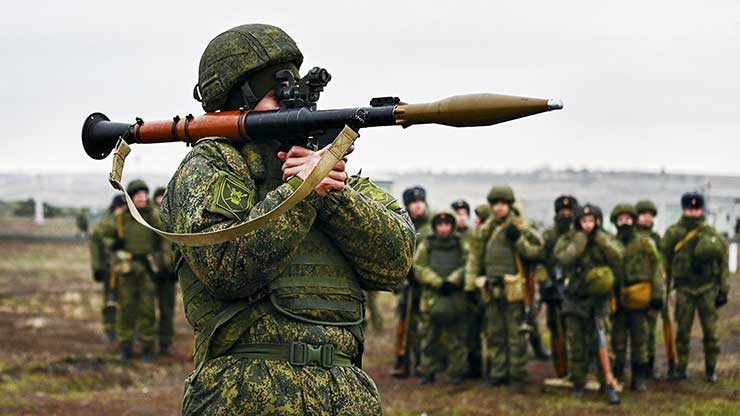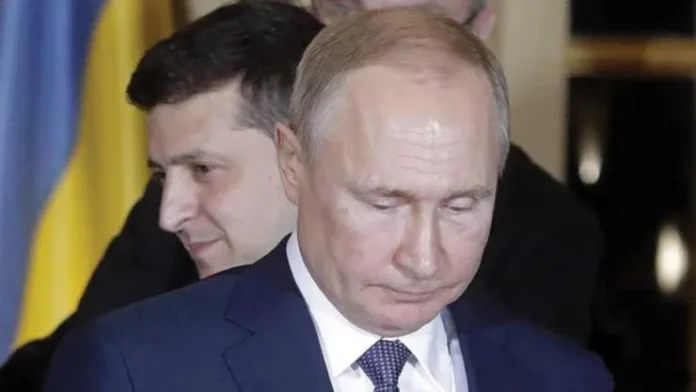No matter how much one tries to avoid reading about the Russia-Ukraine ‘special operations’, the media, print and visual, has at least one news item on it, hence, my contribution to add to the many already existing!
February 24, 2022 would go down in history as an ignominious date, when Russia attacked Ukraine. Seven months on, the operations are still on, and not going too right for Russia. The six-month anniversary of the conflict coincided with Ukraine’s Independence Day, although the celebrations were subdued.
Both armies are bruised and battered, but the Russian army has been battered a little more than its opponent. As per CIA reports in August, perhaps, 15,000 Russian soldiers have been killed and around 45,000 have been wounded; the Ukraine numbers are somewhat lesser. The depleted numbers of both armies are stretched over a 1,000 km front; how the war progresses, depends upon how quickly each can get its replenishments, both in number of soldiers and weaponry.
During its Independence Day celebrations, there was talk of Ukraine preparing for an offensive, on a scale not expected by Russia. The first week of September has seen the offensive being successfully launched with the Russian army being pushed back and about 6,000 sq. km being reoccupied by Ukraine.
Russia has ordered a ‘partial mobilisation’ of 300,000 troops to augment its army at the front. These troops, although with previous military experience, need to undergo refresher training before they can be deployed, but Russia has a problem of finding trainers, with most of them either dead or wounded, or on the front fighting against Ukraine.
Ukraine, on the other hand, is better placed with hundreds of its combat troops being trained, albeit in abridged capsules, in the western nations. The age profile is also in Ukraine’s favour with most of its troops in the 20s and 30s, while the Russians are anywhere up to the 50s, or may be even older!
The Ukraine offensive that was launched on September 05, has displayed the resolve of the country. Its significance is not just in the fact that it liberated large swathes of territory in a few days—that Russia took more than five months to occupy—nor is it in the large armoury of tanks, and ammunition that the Russian army left behind while fleeing, but it is noteworthy in the fact that Ukraine captured two logistics hubs at Izyum and Kupyansk, so crucial to Russia if it has to integrate the Donbas region with itself.
Predictions in any war are difficult and depend on many variables, but in this war, fortune now seems to favour Ukraine!
An assessment, hence, is in order.
Ukraine’s success in the battlefield depends on two factors—men and material. In using new hardware, it has the upper edge with its inventory getting ‘modernised’ by the day. USA and other friendly western NATO nations—UK, Germany, Poland, to name a few—are constantly supplying it with missiles, rockets, tanks, armoured personnel carriers, and other ammunition.
With the new missiles and rockets, Ukraine can now hit Russian command centres, ammunition dumps and other such targets with an accuracy hither-to-fore not possessed by it, giving it the capability to even modify the terms of engagement, if the need so arises. Russia, on the other hand, cannot do so, with its assets being severely depleted, and now being mauled.
Ukraine is also at an advantage in-so-far as manpower is concerned. With soldiers fighting for the survival of their motherland, for saving their homes and their fellow citizens, they are definitely more motivated than the Russian soldier, who really does not know what he is fighting for. The newly mobilised troops would be even less motivated!
Ukraine’s entire adult male population is available to it, not just for fighting on the front, but also as home guards, police, medical staff and in other roles to support the soldier on the front. With modern war-fighting equipment flowing in from NATO countries in Europe and USA, albeit in fits and starts, and with adequate training to operate that equipment, their morale is high.
On the other side, Russia is struggling to replace the lost troops, trying to fill in the losses by providing bonuses to prisoners from jails, and using proxy mercenaries; its arsenal is mainly of the Soviet era, not really a match for the new weapons, except, probably in numbers.

The latest mobilisation can fill in the void, but only theoretically. Although improbable, a general collapse of the Russian forces, in fragments along the long war-front, cannot be ruled out.
Political and military support to Ukraine, has propelled Zelensky as a popular leader in Ukraine. Sceptics, on his taking over the presidency, are now talking in his favour. On the other hand, in Russia, Putin, although in control, appears to be facing dissent, especially on the social media. A social media post, on the opening of the Moscow-eye ferris wheel, read: “The army has NO thermal imaging cameras, NO body armour, NO reconnaissance equipment, NO secure communications, NO first-aid kits, you are holding a billion-rouble feast. What is wrong with you?”
In Russia, Putin, although in control, appears to be facing dissent, especially on the social media. Cracks are becoming more visible and vocal, with some brave politicians even asking for Putin’s resignation
Physical dissent is met with police violence, arrests, and prosecution. Putin’s power depends upon the Russian populace believing in his campaign against Ukraine, that it is being ruled by Nazis, and that the West wants to disintegrate Russia. His propaganda department is working overtime! Yet, the cracks are becoming more visible and vocal, with some brave politicians even asking for Putin’s resignation!
What has gone on in favour of Russia is that its economy has weathered the sanctions storm, better than what was expected by the West. Nevertheless, it is now showing the first signs of stagnation. Geopolitical support too is slowly waning; countries that did not speak against the operations in February, are now speaking up in diplomatese.
At the recently concluded SCO meeting, Xi Jinping of China, its ‘friend forever’, conceded in his opening statement that China had “questions and concerns” about what’s happening in Ukraine. The Indian Prime Minister, Narendra Modi, who had so far maintained diplomatic silence, asking for an early end through diplomacy and dialogue, however, mentioned in somewhat sharper terms, during his meeting with Putin, that “the era of war is over” (This has now been quoted by President Macron of France in the ongoing UN General Assembly session in New York).
Other neutral nations, which had not spoken out thus far, are now grumbling about the timing and the ill-effects of the war on them. The sanctions on Russia may not have had such an adverse effect on Russia per se, but have had a debilitating effect on the world food-security and energy-security. The western neighbouring nations of Ukraine, Poland, Latvia, Lithuania, Hungary and others, which had initially welcomed Ukrainian refugees, are also feeling the pinch.
A Ukrainian citizen is reported to have said: “One of Putin’s advisers should just go to him and tell him that he’s won, that he’s conquered us…that there’s no more Ukraine…then we get on with our lives”. Victory for Ukraine is not yet certain, yet the latest offensive by the Ukrainian army may have given it a glimmer of hope. Eviction of the Russian forces from the occupied areas will be difficult, but may not be impossible. Russia can put an end to the war, anytime that it wishes to do so, but the end, in the present situation, will not be on Russian terms. A task, easier said than done!
–The writer is an IAF veteran. The views expressed are personal and do not necessarily reflect the views of Raksha Anirveda





